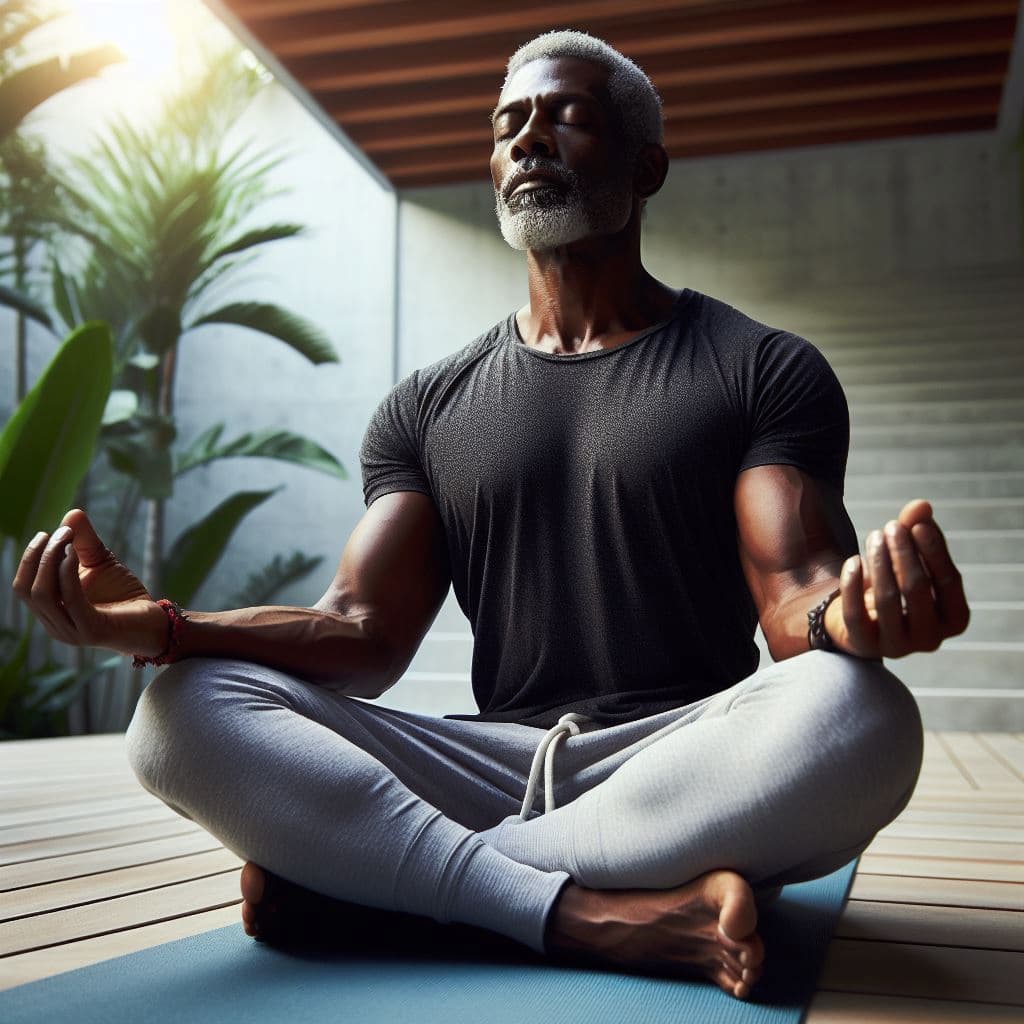Retirement lifestyle plan, emotional balance, setting goals, social circles, transitional job, fitness.

Retirement Lifestyle Plan: Introduction
Retirement can be a significant life change with both challenges and benefits. Retirement is an opportunity to reap the fruits of all your hard work while exploring your passions with renewed vigor, plus spend more time with loved ones and adjust your lifestyle. But it can also bring anxiety, stress, or depression as you adjust. Financial factors often dominate when searching for “retirement planning”. We will dedicate significant space in our blogs for this topic alone – however it is equally essential that non-financial aspects that can impact happiness and wellbeing during retirement!
Having a Retirement Lifestyle Plan in place will help ensure a seamless transition into this new stage. Lifestyle retirement planning offers holistic approaches. Here are some tips on how you can fully enjoy your retirement lifestyle.

You will experience different emotions, especially at the beginning.
The retirement journey involves a long-term process that encompasses multiple emotions. At various times, you may feel anxious, excited, relieved, or bored. These feelings are common and normal among retirees as these reactions reflect changes and losses brought on by retirement. This includes leaving your career or losing yourself to retirement.
Allow yourself to express and manage your feelings in healthy ways, reaching out for support, when necessary, from family, friends or counselors. Finding healthy ways of coping such as music therapy, writing or painting as outlets of expression; hobbies; exercising regularly or traveling as enjoyable forms of therapy; meditation or yoga can even help balance out emotions.
Learning about mindfulness, how to be present and feel gratitude can be a very helpful tool for working through these emotions. We have that topic covered here -> Cultivating Mindfulness as We Age
Retirement is a journey and not an endpoint; to reach it successfully, avoid turning to drugs or alcohol as a quick fix in daily life; this will only create more issues and problems down the road. Be persistent in finding your own rhythm and identity over time!

Structure Your Days
One of the hardest parts about retirement can be finding an effective way to structure your day, especially without a demanding job that dictates routine. There may be too much or too little time.
Routine can help you feel more productive and organized. A routine can increase motivation and focus, as you plan your days around activities you enjoy such as hobbies or socializing. Furthermore, different schedules can be experimented with to find what best works for you.
Retirement offers you more freedom and control of your life, giving you more control of how, when, and where to spend your time. Planning each day helps make for even better days to come! Use what information is gained over time to create even greater days for yourself.
Related: Product Recommendations and Gifts for Men

Aim for Small Goals
Small goals can add motivation and meaning to retirement. Achievement feels much sweeter when there’s something concrete to strive for, whether this involves personal development, health issues, finances, or anything else of importance in your life.
Make a goal for yourself of learning a foreign language, a musical instrument, a new hobby; getting fitter through walking, running, or swimming; setting a financial goal such as vacation travel expenses; giving gifts; or charitable donations.
Set goals that are SMART – Specific, Measurable Achievable Relevant and Timebound. When setting SMART goals for retirement, clearly identify them, monitor progress toward them and ensure they align with your values as well as set a deadline and reward yourself if your goals are accomplished versus penalize yourself if not. Remember it’s not worth breaking yourself into pieces! Keep it easy – setting goals should not create stress.

Expand and enhance your social circles.
Social support is vital to both mental and physical wellbeing; having friends who share similar interests, values and experiences will make retirement more fulfilling and enjoyable; they may even provide some much-needed relief when dealing with challenges that come your way.
Joining clubs, sport leagues such as pickleball, badminton or golf, or taking classes that interest you can be a great way to stay in touch and make new friends. Plus, volunteer your services for causes you care deeply about or mentor someone who could learn from your expertise – these activities will expand your social circle while giving back to the community!
Spending more time with your family is another excellent way to create quality moments, particularly with your spouse, children, and grandchildren. Share wisdom, love and stories while encouraging each one through challenges or endeavors they face – plan trips, events, and outings together and foster stronger ties between generations.

Keep Learning
Going to school or taking courses as a retiree can be very beneficial. These activities help to enable retirees to continue learning throughout their lives, which can also maintain a healthy mind. Simply put, the continuation of learning in almost any form can assist with keeping the mind sharp which can make one feel they are still in the game.
Learning new things can help retirees pursue hobbies they might not have been able to engage in during their working years. This can assist in relieving boredom by providing mental stimulation, which helps to maintain overall satisfaction with life in general. It can also help alleviate loneliness and even increase your social circle because it gives retirees another way to get out and about. Finally, attending school can help you master new skills which can be useful in everyday life, in a new career or volunteer work in retirement. In summary, taking classes and maintaining an approach of lifelong learning as a retiree can boost one’s quality of life and mental state, which usually leads to a happier retirement.
Recommendations for affordable (even free) online course options
You might want to consider a transitional job for retirement.
Freelancer, consultant, teacher’s aide, or part-time employment can meet your preferences and needs if you miss being in the workplace, while passions and talents may help launch a side hustle business from what you may have started while working.
Jobs can be an excellent way to stay mentally engaged, socially connected and financially stable. By applying your skills in new ways or even exploring a potential new field of employment you might discover the joy and satisfaction you have been searching for all along!
In addition to a transitional job, a side hustle can also be a viable option. We have that topic covered here ->How to Plan Your Retirement Business.
Make sure that you consider the potential negative consequences, such as fatigue, stress, and boredom. Find a balance between work and leisure time; avoid overcommitting yourself. Moreover, check the legal and tax implications of continuing work after retirement (particularly important if drawing social security) and consult a financial advisor if necessary.

Look after your health.
Following a healthy diet, getting adequate rest, staying active, taking preventive steps like visiting the doctor on a regular basis and following medical advice are all excellent ways to enhance health during retirement years. When people ask me why I work out regularly with a trainer I tell them it’s training for retirement; my ultimate goal is not only living a long and fulfilling post-working life but also enjoying those days fully with energy and purpose! Here are some tips so that you can plan accordingly for optimal health and longevity:
1. Gain muscle – plan on 30-40 minutes of resistance training at least two, but ideally four days per week, to build up muscle.
Suggestions for at home fitness equipment that will help you gain muscle – Recommendations: Fitness over 50
2. Sleep – aim for eight but get at least 6 hours each night (the recommended minimum being six).
3. Cardio exercise – commit 30-40 minutes three times weekly for cardio exercises to build your heart health.
4. Lose weight as necessary – Discuss with your doctor your ideal weight and create a plan together for reaching it.
More on fitness as you approach retirement -> ‘Reigniting Your Fitness to Love Your 60s’
Maintaining and strengthening your health will boost your mood and energy level while also prolonging life by helping to avoid or postpone chronic illnesses such as cancer, diabetes, and heart disease.
Mental wellbeing can also be maintained by managing stress, practicing mindfulness, or seeking professional assistance when necessary. You can stimulate your brain through volunteering, part-time work, learning new skills or solving puzzles; meditation, prayer or connecting with nature all serve to nurture spirit health.

Begin your retirement lifestyle plan before you retire.
One of the best ways to prepare for retirement is to start thinking ahead about your lifestyle in retirement – this can help set realistic expectations and prevent unpleasant surprises!
As part of your retirement preparations, considering what kind of living arrangement you envision is essential. It could include anything from moving into a retirement home to downsizing to a smaller house; cities or beaches might even be appealing options! In any event, having an idea of the lifestyle you would like during retirement will allow you to plan costs effectively and adjust savings plans accordingly. These plans should also be discussed with anyone you plan to live with during retirement as early as possible.
Planning your retirement lifestyle also means considering how you want to use your time, money, and energy after you no longer work. This includes considering your personal, health, and social goals – perhaps by selecting activities to add into your weekly schedule – such as Cooking; Beach; Golf (or another sport of your choosing); Volunteerism or exploring second careers as focal points of your week. These are just a few suggestions; there may be many more that would suit you.
Outlining these lifestyle goals prior to retirement will set the foundation for you and your spouse or partner for an amazing retirement lifestyle plan.
Conclusion
Retirement can be an ongoing learning experience; it may take time to discover your new rhythm or identity; this is why many experts advise starting the retirement lifestyle planning process as early as possible, prior to reaching retirement age if possible. However, you don’t have to know everything right away; feel free to experiment, explore different possibilities, and alter plans as necessary along your journey.
Planning for retirement involves more than simply finances. For a rewarding and enjoyable retirement, you should foster relationships, explore new interests, prioritize self-care and health concerns, among many other considerations. Remember that retirement isn’t the end of your life, but rather a new beginning. Enjoy this new chapter as much as possible by creating a retirement lifestyle plan that makes your life enjoyable and fulfilling – you deserve it.
